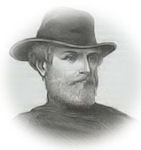November 5, 1860
![]()
Senator SEWARD, in his speech on Friday night, declared the whole aim and duty of the Republican Party to be to leave Slavery just where it is. They do not seek to abolish or disturb it; but they do propose to prevent its extension or increase. It is not easy to see what objection any rational man can make to such a policy. The whole disturbance which prevails through the country has been caused by the efforts of the South to increase Slavery. They have pursued this policy steadily for some years past, covering its purpose by charging its opponents with designing to interfere with it where it now exists.
Senator SEWARD’s declaration on this point ought to have weight with candid and fair-minded men. He has always been regarded as among the most advanced of the Anti-Slavery Republicans. If any one had designs upon Slavery in the South, he was supposed to be the man. But his disclaimer on this point is direct and complete. All he aims at is to have Slavery left where it is, – and this is all the Republican Party proposes to do about it.
The Charleston Mercury not long ago declared that the success of the Republican Party would put an end to the slavery agitation as a sectional question. “It will cease to be a contest between the North and South,” said the Mercury, and will be transferred to the Southern States.” Is not that precisely where it belongs? Has it not been a standing reproach for years that we were meddling with a subject which did not concern us, – that we were stirring up a sectional agitation, – that the question of Slavery belonged exclusively to the South, and should be left for the South to manage? Yet this is precisely the result which the Charleston Mercury dreads and deprecates as the result of a Republican victory.
We venture the prediction that, in less than one year after the incoming of a Republican Administration, that party will be generally recognized as the most truly national and conservative party in the Union. It proposes the settlement of the Slavery question on the only possible basis, – that of checking the increase of the evil, and leaving it to the operation of natural causes and the laws of social economy.








